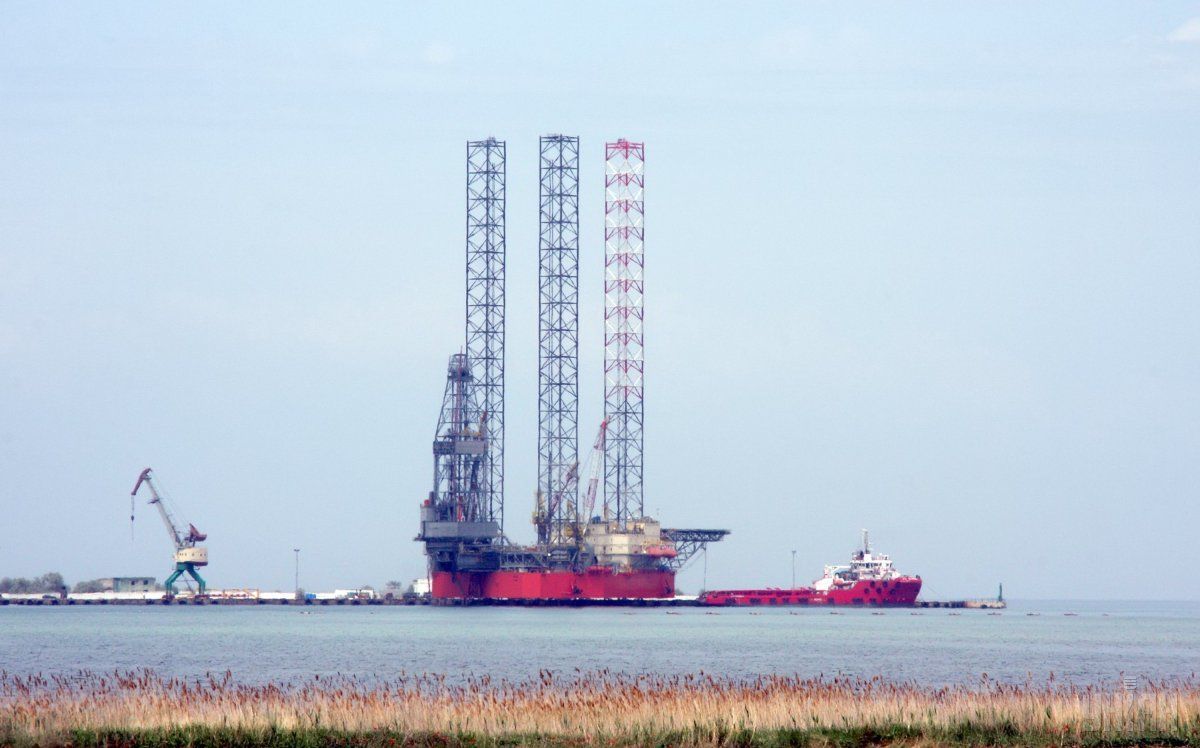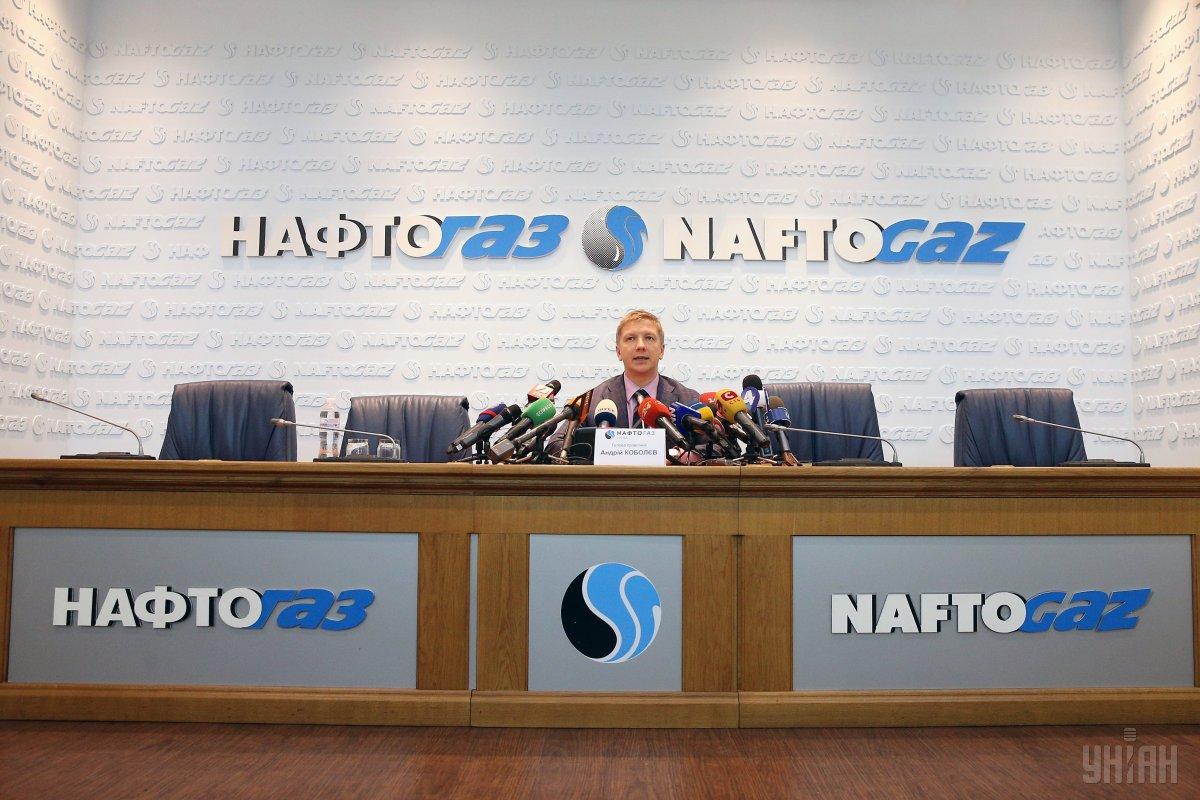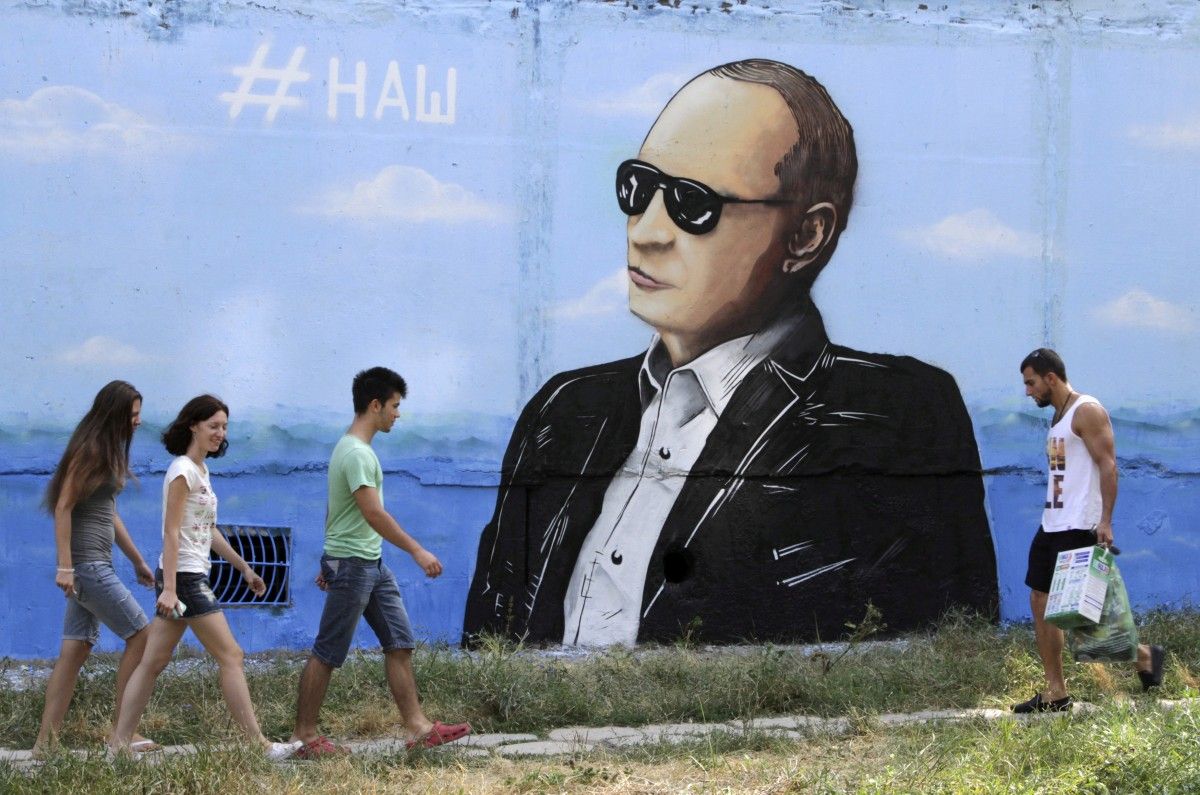
Russia in litigation siege. Can Naftogaz receive compensation for assets lost in annexed Crimea
Naftogaz, in its lawsuit, told The Hague court that the estimated losses from the seizure by Russia of the group’s assets in Crimea stood at $5.2 billion. Naftogaz expects that the international tribunal will hand down a verdict no earlier than late 2020. UNIAN learned whether the state-owned company would be able to receive compensation from the Kremlin, even if the court’s awards are in favor of Ukraine.
National Joint-Stock Company Naftogaz of Ukraine and enterprises belonging to the state holding group filed a lawsuit with the Tribunal at the Permanent Court of Arbitration in The Hague on the amount of compensation for losses incurred by the expropriation by Russia of NJSC's assets in the annexed Crimea.
The Naftogaz Group has asked the Court to oblige the Russian Federation to pay $5.2 billion to the plaintiffs. The Tribunal is expected to rule on compensation for losses no earlier than the end of 2020," the state company said in a statement.
Ukrainian perseverance vs Russian impudence
The litigation saga in the international law field goes as follows: arbitration against the Russian Federation was launched in October 2016 upon the joint application of Naftogaz and six companies that are part of the group: Chornomornaftogaz, Ukrtransgaz, Likvo LLC , JSC Ukrgazvydobuvannya, JSC Ukrtransnafta, and SC Gaz Ukrainy.
The claims are based on a violation of the Agreement between the Cabinet of Ministers of Ukraine and the Government of the Russian Federation "On the Promotion and Reciprocal Protection of Investments", better known as the Ukrainian-Russian agreement on investment protection.
Oral hearings on jurisdiction and responsibility was held at the Peace Palace in The Hague in May 2018. The Permanent Court of Arbitration in The Hague confirmed it was entitled to consider cases of property relations in the Ukrainian Crimea occupied by Russia, and admitted that the Russian Federation violated a number of provisions of the "investment" agreement by seizing the Crimean assets of the Naftogaz group.

"We were able to prove that Russia, as a state, is to blame for the loss of our assets and must be held responsible for this, that is, to provide compensation to NJSC Naftogaz of Ukraine," said CEO Andriy Kobolyev.
The court decided to divide the consideration of the Naftogaz suit into two stages. The first is recognizing Moscow violator of the agreements (which has already taken place). The second one is determining the amount of compensation due to be paid. And now Naftogaz has decided on its claims in monetary terms.
"Naftogaz had owned valuable energy assets in Crimea and was one of the main targets of the Russian Federation, taking into account company assets after the illegal invasion and occupation of the peninsula in 2014," the Ukrainian oil and gas holding said in a statement.
However, initially the amount of compensation requested by Naftogaz, plus the expected interest, amounted to $8 billion. Now it has dropped by $3 billion.
The Russian Federation immediately tried to challenge the Hague court’s decision, but failed to do so, and therefore went for simply ignoring the hearings. The arbitration court consists of three plenipotentiaries, and as the Kremlin refused to nominate its own, such representative was appointed in The Hague. By that time, about 480 Ukrainian enterprises, whose assets were "nationalized" by invaders in Crimea, had filed lawsuits with the Hague Tribunal and other international instances. They were filed in several packages of legal claims. The Hague Court took the side of a number of Ukrainian companies, including the State Bank of Ukraine, Oschadbank. Russia appealed the verdicts obliging them to pay millions to Ukrainian businesses and, realizing the inevitability of bearing responsibility for what's been done, decided to take part in the hearings.
"While maintaining a common approach, Russia still does not consider arbitration to be competent in this part – the Russian Federation will take part in future processes that Ukraine and other countries have already initiated or may initiate in international arbitration courts. We see that in relation to the Russian Federation a real legal war is being waged, including not always in good faith. And this requires tougher action, including in the early stages," said Russian Minister of Justice Oleksandr Konovalov.
In addition, finding itself in international litigation siege, Russia figured out a "legal" way out by refusing to ratify the Rome Charter of the International Criminal Court in The Hague and recognizing at the legislative level the right to solve all problems solely on the basis of its own Constitution. Although the signing by Moscow in 1998 of the Agreement on the Promotion and Reciprocal Protection of Investments with Kyiv means its automatic consent to the consideration of economic disputes in the arbitration court, Russia is now denying such an approach. This means that the Kremlin will not pay compensation voluntarily.
To punish or to acquit
Oleksiy Kot, Doctor of Law, Managing Partner of Antika Law Firm, believes that today the decision of The Hague court is difficult to predict. On the one hand, Ukraine has collected enough evidence of violations by Russia. Moreover, taking into account the court’s position regarding the recognition of a partial violation by Russia of the investment agreement, the probability of the ruling being positive for Ukraine is quite high.

"At the same time, the main struggle will be around determining the amount of damage that Russia will try to minimize, as well as how the court will protect the violated rights of Ukrainian companies. We cannot rule out the decision obliging Ukraine to return the assets, which, given the current political conditions and the current nature of relations between Ukraine and Russia, will be virtually useless due to the inability to execute it," the lawyer said.
In his opinion, if monetary compensation is awarded, Ukraine will have a lot of ways to influence Russia in order to force it to comply with the decision of the Tribunal to one extent or another.
"For example, even if Russia refuses to pay, there is a large number of assets of Russian state-owned companies worldwide, including of Gazprom. The experience of various legal disputes suggests that such assets can be seized and recovered from them in the countries where they are located and where local courts will not refuse to enforce the awards of the Tribunal. In any case, the end of 2020 is a rather optimistic estimate. Meanwhile, on the part of Russia, attempts should be expected to maximize the delay in the consideration of the case. We must not forget that, despite formal independence and impartiality in such cases, the Tribunal is still subject to the influence of the global geopolitical situation. If it changes in the context of the conflict between the Russian Federation and Ukraine, the decision may not be made in favor of Ukraine," summed up Kot.
According to the managing partner and lawyer at Glagos JSC Dmytro Shapoval, most likely, the decision of The Hague tribunal will be in favor of Naftogaz, since similar claims regarding the property of Ukrainian companies in the annexed Crimea have already been considered by this court, all in Ukraine's favor.
"It's hard to say whether the Russian Federation will pay the money awarded. The issue of enforcing a possible court verdict will be decided in Moscow. However, if you look at how Russia implements other similar decisions, then most likely we should not expect voluntary execution. In this case, it is possible to enforce a court decision by collecting debt from Russian assets both in Ukraine and around the world. The recent experience of a number of Ukrainian companies regarding the decisions of The Hague Tribunal testifies to quite realistic chances for them to be implemented by Naftogaz, of course, if there's a positive outcome of the case," the lawyer concluded.
Anyway, arbitration awards handed down in line with the civilized rules on the claims of Ukrainian enterprises in connection with the loss of assets in the annexed Crimea really play to the benefit of Ukraine. They show the whole world that Russia is the main violator of international law. However, there's hope that top managers of SOEs will refrain from taking those multi-million bonuses for their court wins until Ukraine's northern neighbor actually pays its debts.
Nana Chornaya

